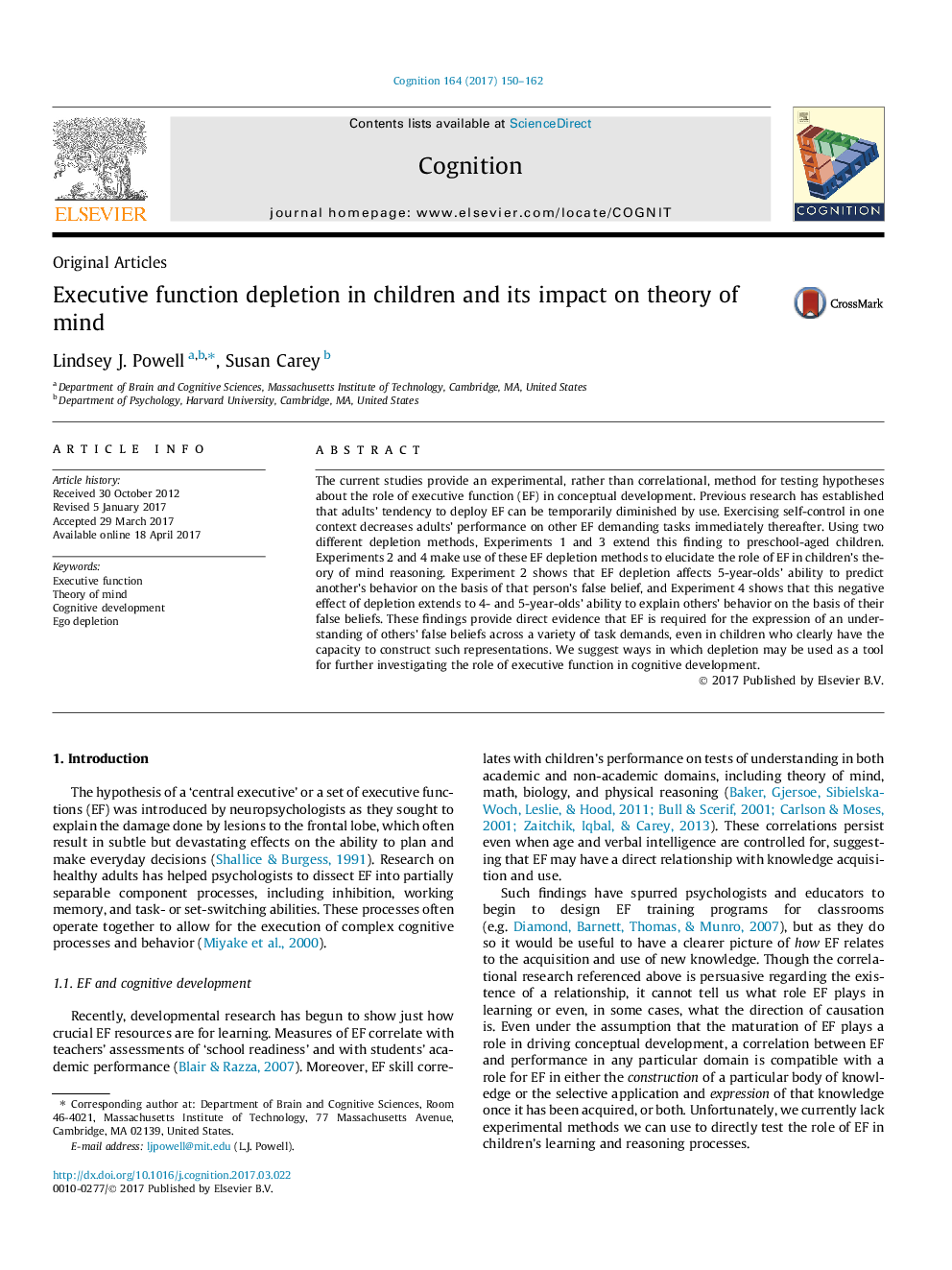| Article ID | Journal | Published Year | Pages | File Type |
|---|---|---|---|---|
| 5041606 | Cognition | 2017 | 13 Pages |
â¢5-year-old children exhibit executive function (EF) depletion.â¢This EF depletion impairs children's performance on standard false belief tasks.â¢EF depletion also impairs the generation of explanations involving false beliefs.â¢Across diverse tasks, EF is necessary for expression of children's theory of mind.
The current studies provide an experimental, rather than correlational, method for testing hypotheses about the role of executive function (EF) in conceptual development. Previous research has established that adults' tendency to deploy EF can be temporarily diminished by use. Exercising self-control in one context decreases adults' performance on other EF demanding tasks immediately thereafter. Using two different depletion methods, Experiments 1 and 3 extend this finding to preschool-aged children. Experiments 2 and 4 make use of these EF depletion methods to elucidate the role of EF in children's theory of mind reasoning. Experiment 2 shows that EF depletion affects 5-year-olds' ability to predict another's behavior on the basis of that person's false belief, and Experiment 4 shows that this negative effect of depletion extends to 4- and 5-year-olds' ability to explain others' behavior on the basis of their false beliefs. These findings provide direct evidence that EF is required for the expression of an understanding of others' false beliefs across a variety of task demands, even in children who clearly have the capacity to construct such representations. We suggest ways in which depletion may be used as a tool for further investigating the role of executive function in cognitive development.
